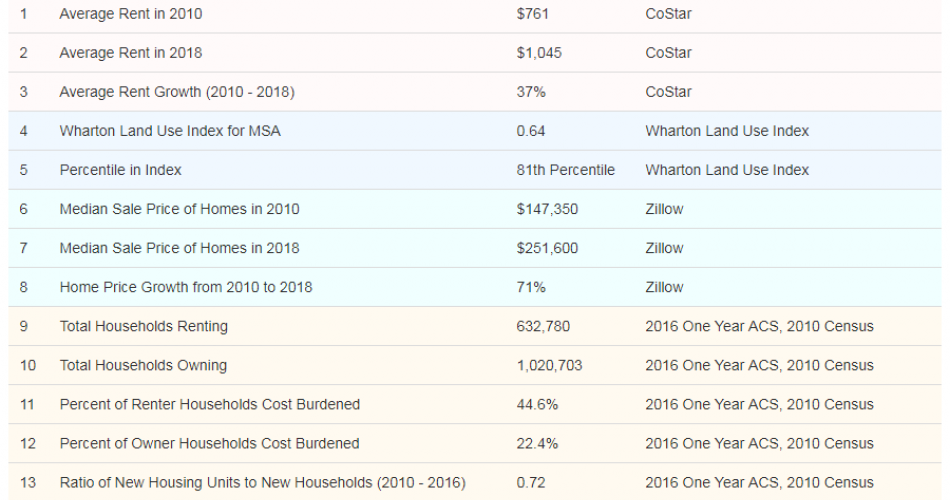Reading time: 4 minutes
Accompanying the Housing Market Affordability Indicators Dashboard is a communications toolkit with additional background, statistics, and academic research on some of the policy areas and societal issues directly and indirectly affected by housing. These include land and infrastructure use, the cost of housing, environmental and air quality concerns, housing equity, urbanization, and combating the outsized influence of NIMBYism. The data undergirds a powerful and compelling argument for those who want to make a difference in and communicate about how we approach housing, including candidates for federal office.
“Accessible and compelling facts and data are needed to change the policy conversation about housing,” said Mike Kingsella, Executive Director of Up for Growth Action. “Our Housing Market Affordability Indicators Dashboard and communications toolkit provide the information needed to better understand – and talk about – how metropolitan areas across the United States have been affected by the housing shortage and affordability crisis, building on our previous state-level research on housing underproduction. We hope these tools are used far and wide by lawmakers, candidates, activists, and others who know we can and must take a different approach to housing.”
The dashboard and communications toolkit are featured on Up for Growth’s newly redesigned website. The toolkit is the latest research project from Up for Growth, building on the Housing Underproduction report which found that from 2000 – 2015, the U.S. failed to produce the 7.3 million units of housing needed to keep up with demand. The shortage was felt in 22 states and Washington, DC.
You can download a pdf of the press release by clicking here.
About Up for Growth Action: Up for Growth Action is a 501(c)(4) that represents a vibrant, diverse and growing coalition of advocates who believe communities should grow for the benefit of every person. We support federal and state policies that improve equitable, environmental and economic health by promoting vibrant, walkable communities with housing close to jobs, transportation and amenities.
